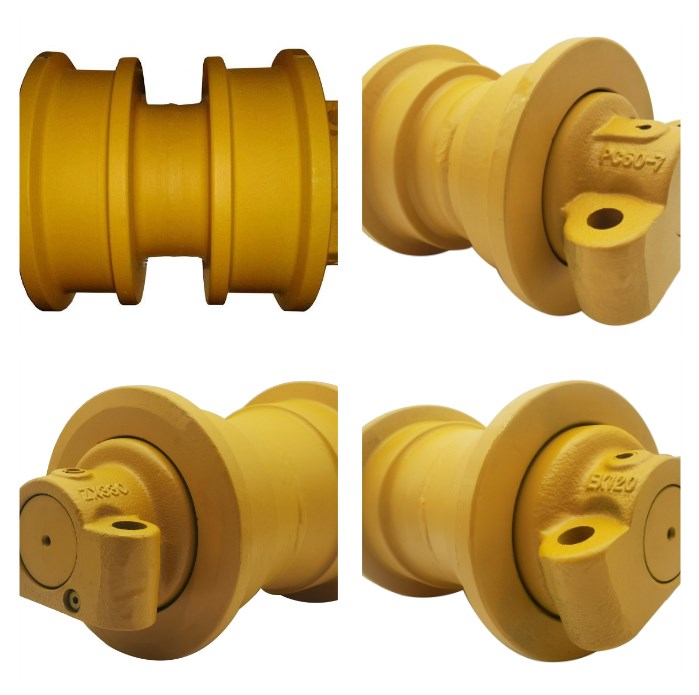The Main Structure and Function of Track Rollers
The bulldozer track roller is an important component of the undercarriage system in excavators and bulldozers. Its main function is to support the weight of the bulldozer and excavator, allowing the tracks to move along the rollers. The main components of the track roller include the wheel body, track roller shaft, bushing, sealing ring, end cap, and other related structural parts. Excavator track rollers are generally painted black, while bulldozer track rollers are usually painted yellow.

The track roller is fixed under the roller frame with screws to support the machine’s weight and distribute it across the track plates. It can transfer the weight of the locomotive set to the ground and roll on the track. To prevent derailment, it can also prevent lateral relative movement of the track. track rollers often work in mud, water, ash, and sand, enduring strong impacts and extremely harsh working conditions, leading to easy wear of the wheel rim. Therefore, the requirements for buttom rollers include wear resistance and reliable bearing seals.

Lower rollers can be divided into single-flange and double-flange types based on their structure. For example, D65-8 track roller is double flange while EX120/PC50-7/ZX330 are single flanges. They employ both sliding bearings and rolling bearings. The rims of the track rollers/bottom rollers/lower rollers are hardened, with a hardness of 355-440HB. In the undercarriage, particularly when spacers are installed to increase rigidity, the resulting cavities can easily become clogged with dirt, obstructing the track rollers. Running on soaked soil can also easily clog the track rollers. Therefore, some tracked bulldozers are equipped with track roller guards with reinforcing ribs on the outside of the undercarriage frame.


